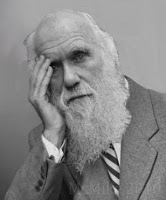Mainstream science — despite all its claims of objectivity, and despite the fact it attempts to lay claim to the truth — is itself a religion.
Science places itself on a pedestal and assures everyone it has dispassionately arrived at its conclusions. Meanwhile, however, it is full of assumptions, denials and limitations, and makes the serious mistake of presenting its theories as facts.
Materialism, the driving force behind mainstream science, has been shown again and again to lack the capacity to explain the world around us, especially in relation to idealism or other theories that account for the energetic nature of reality. However, the errors and assumptions of mainstream science are gladly seized upon by technocrats, who are eager to use science and technology to further their own ambitions of control. The planned New World Order has a massive technocratic aspect, and includes forcing the vaccine, GMO, surveillance, geoengineering, carbon-driven global warming, SMART and microchipping agendas onto an unsuspecting public.
Yet, despite this, we remain collectively bedazzled by materialism, a religion that has induced a certain faith in us. And up until recently, it has still been difficult for society at large to accept the fact that the unseen energetic realms of our reality are actually more powerful and more primal than the material realms we can see and touch … but that is starting to change.
Back to Ancient Athens – Materialism vs. Idealism
This is certainly not the first time we have struggled with the debate of whether the world can best be described by the philosophy of materialism; the ancient Greek philosophers and scientists thought long and hard about the issue.
…click on the above link to read the rest of the article…









